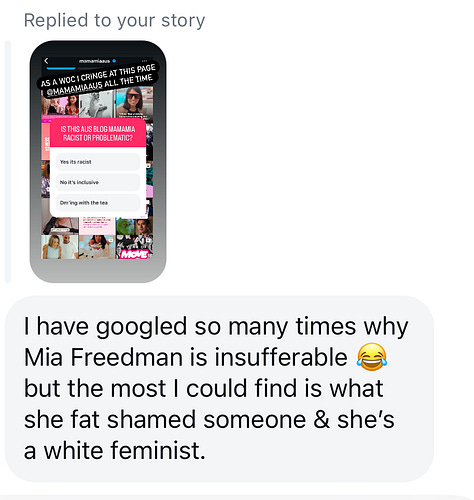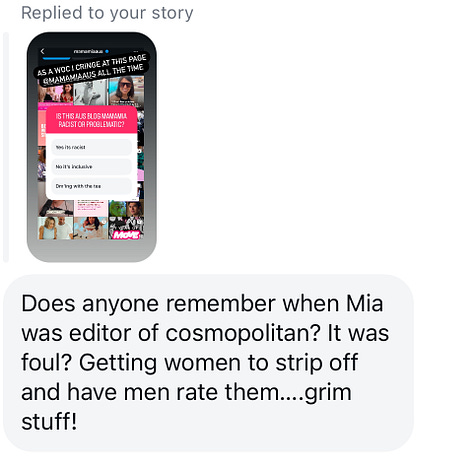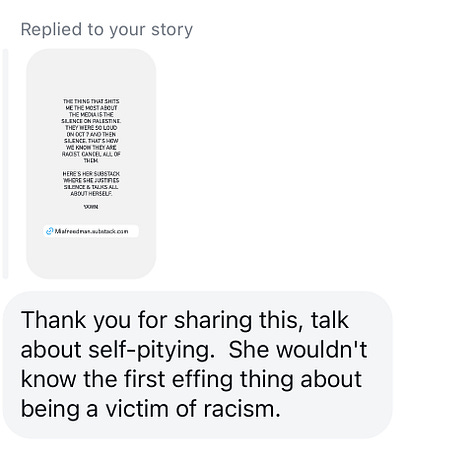Mia Freedman & the Problem with White Women in Australian Media
Examining the white feminist lens in Australian media and its impact on representation and inclusivity.
This week on Unlearning Shit, I shared my thoughts on Mamamia, the popular women’s site founded by former Cosmo editor Mia Freedman. While the platform presents itself as progressive for Australian women, I’ve always felt uneasy about the way it centers the white female gaze and portrays people of color.
This isn’t a new concern for me. Followers who’ve been with me since Aussie WOC know I’ve consistently discussed white feminism in Australia and how it often excludes or misrepresents women of color.
The responses to my post were quite strong (see below), even after five years of calling out issues in brands and media I was still a little taken aback. To be clear, I’m not claiming Mamamia is overtly racist, but the platform has faced criticism over its editorial decisions in the past—such as its handling of Roxane Gay’s appearance—which raises many questions about it’s inclusivity.
Some of my followers pointed out that Mia Freedman, who is Jewish and has expressed support for Israel on her Substack, recently addressed the ongoing conflict in a post titled “Is this what we’re doing now?”.



In her post, Freedman writes: “Terrorism, war, sexual violence, and the death of civilians are always tragic, and we must never stop being shocked and appalled by the loss of human life.” While this statement is broadly empathetic, I found the focus skewed heavily toward one side of the conflict. There’s an emphasis on the importance of avoiding antisemitism and justifying Israel’s actions, but little acknowledgment of the ongoing violence and suffering experienced by Palestinians.
Freedman explains her silence on the topic by saying she didn’t want to center herself in the conversation. But the post feels pretty self-referential, with her bringing up how she wasn’t even directly criticized yet still playing the victim against a narrative that wasn’t there. For me, this reflects a broader pattern often seen in white feminism: centering personal experiences while sidestepping accountability for structural inequalities.
I ask myself, is this really the woman we want driving the opinions of millions of Australian women?
It’s also worth reflecting on Freedman’s broader influence in Australian media. During her tenure as editor of Cosmopolitan in the late ’90s and early 2000s, the magazine shaped how young women viewed themselves and the world. Like many publications of that era, it heavily promoted white beauty standards and narratives aligned with the male gaze. It wasn’t great. I find this hard to ignore and the criticism shared with me by my followers to ring true for me, also.
However, this is not just about Mia Freedman. It speaks to a systemic issue in Australian media, where white voices have historically dominated and failed to create meaningful space for women of color. This dynamic perpetuates the colonial narrative that “Australia is for white people,” despite the country’s diverse population.
What frustrates me most is how the media continues to uphold this disparity in a society that claims to celebrate multiculturalism. There’s a huge opportunity—and a need—for Australian media to do better in representing all voices authentically and equitably. However, meaningful change will require moving beyond the dominance of white voices in these spaces.
Here’s hoping for change but not holding my breath for it.


